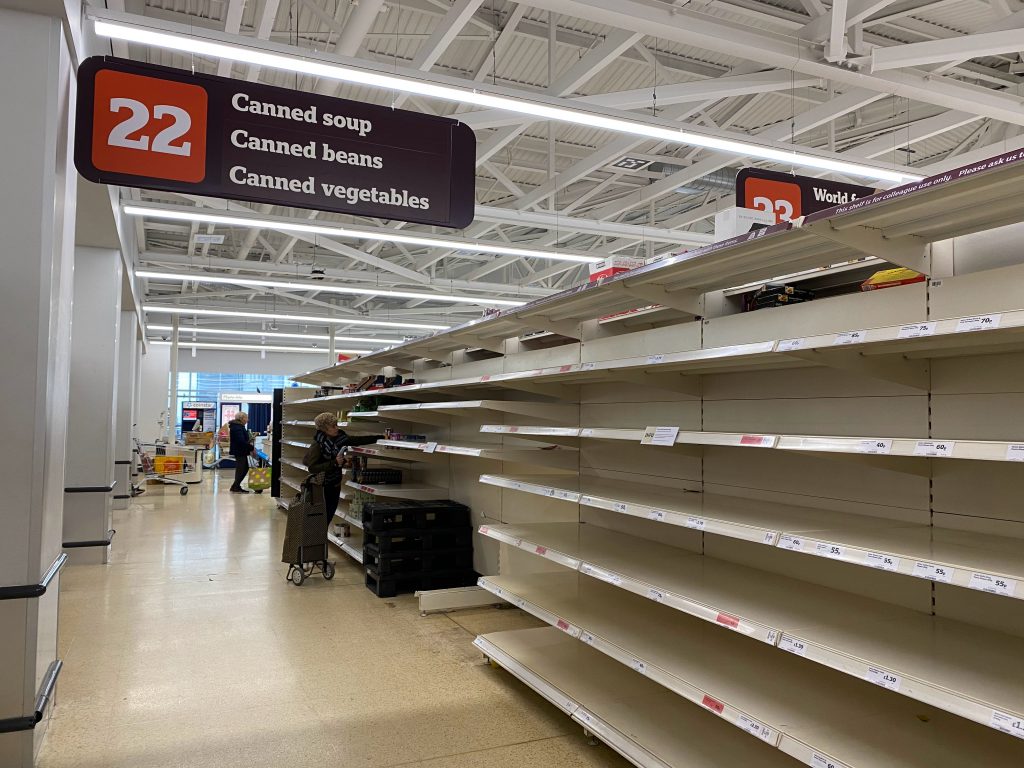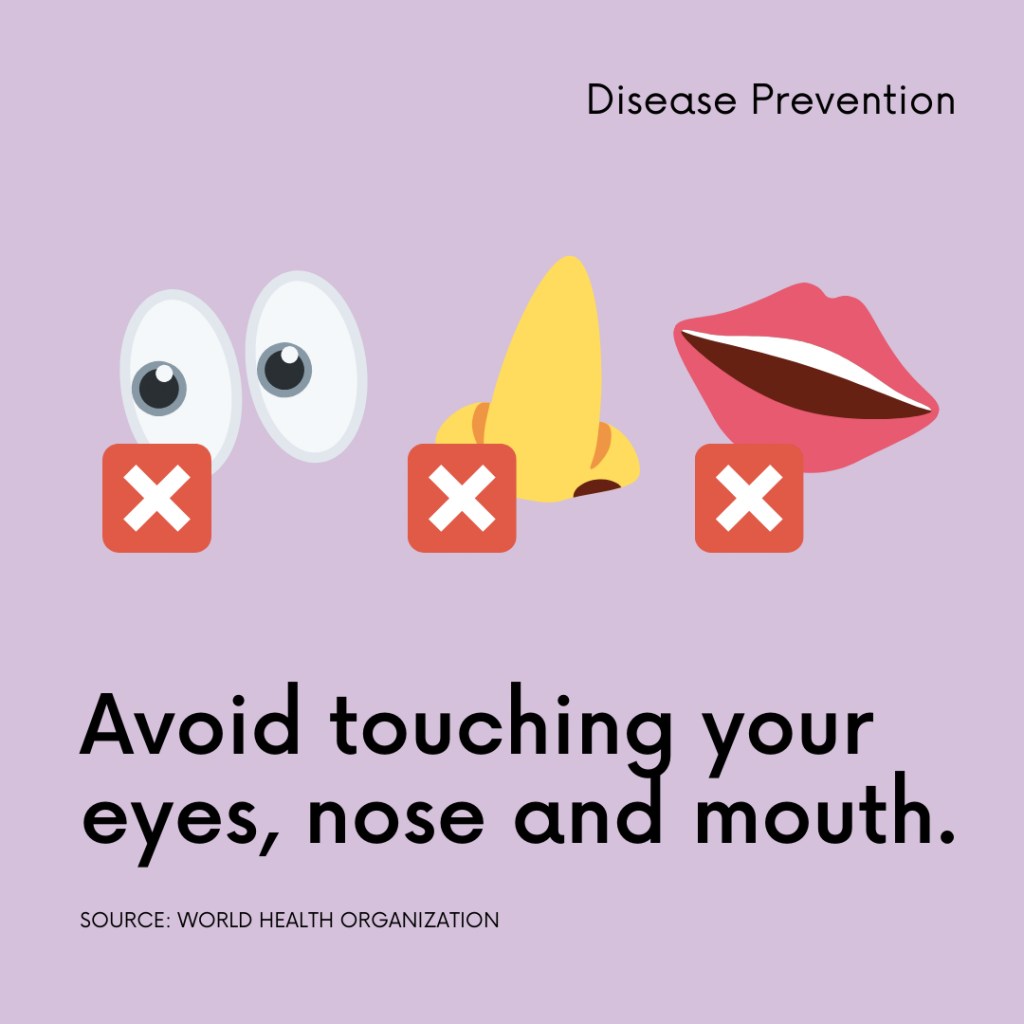
Spring break. Graduation. A dinner and movie out with friends. You had all the plans. I had all the plans. And then, in what seemed like a totally surreal 48 hours around March 12, we didn’t. If your experience was anything like mine, you spent a few days in something akin to a fog of “what is happening?!” I noticed it first when I went to Target with my kids to buy one of their friends a birthday present. There I was, somehow oblivious with some Frozen II trinkets, surrounded by anxious-looking people with carts full of dog food and poptarts, because all the bread, peanut butter, sanitizer, and (yes) toilet paper had already sold out. It felt like an alternative reality. In some ways, it still does.
There are many things to think about in the context of this worldwide pandemic. Below I want to direct you to some of the interesting, thought provoking, and useful reflections I have come across in the recent days. Although a health issue, this pandemic—and our reaction to it—reflects important psychological and a spiritual issues as well.

Things did not go as planned. At least, not our plans. In the coming days, as we spend more time by ourselves and in our thoughts, may we choose to not just spend more time on Netflix or scrolling mindlessly through Instagram. May we, instead, reflect and use this unexpected moment to learn and grow in the midst of whatever trials this moment brings us. May we take each day as it comes because now is a moment when it is abundantly clear that we should not worry about tomorrow because today has enough trouble of its own.
Below, I link to a few things that I have found interesting. Since everyone is talking and writing about COVID-19, I do not claim that this is an all-encompassing list or even the most essential list. Instead, I have listed a few of the ideas that I’ve been thinking about the most as, perhaps, these things may be useful for you.
In the comment section, please feel free to share your own thoughts, what you’ve been thinking about, and anything you have read or listened to that you have found particularly helpful, informative, or encouraging. Please be mindful of our CBU cultural standards in your comments.

1. Pandemics do not have to be times of increased productivity. The first weekend the recommendations for social distancing went in place, followed shortly by Governor Newsome’s “Shelter in Place” order for Californians, my email and social media feeds were swamped with all the ways I could use this “newfound time at home” to live my best life. Some of the tips, resources, and business opportunities were helpful; at the same time, many felt a bit predatory. The implicit message behind many of these emails and posts was that I wasn’t really spending my time well unless I exercised more, cooked new foods, and took on a new hobby, all while adjusting to the reality of working from home with a baby, a preschooler, and a school-aged child (all home, all the time). It wasn’t until I read the Christianity Today: Women newsletter penned by Kate Shellnutt (Editor of CT Women), that I had words to identify my emotional reactions. Psychology is clear that disruptions to routines or sudden changes in environment can, indeed, be useful in spurring behavior change, depending on how you approach the disruption. In that sense, yes, the restrictions on travel and socializing may be useful in addressing some bad habits and working to foster better ones. However, as Kate pointed out, it is dishonest to not address the incredible stress that this pandemic is causing. In these moments of stress and—for many—great suffering, there are surely opportunities to refocus on our priorities and prioritize our souls. This kind of intentional prioritization of what is truly important will not sweep aside the realities of the difficulties of the moment; it will, however, mean that the realities of this difficult moment will not make this moment all-consuming. As our movements and routines are necessarily more limited, I am mindful that the push to be productive—for the sake of productivity—misses the mark. As the author of this piece reflects on the push for productivity, “hustle culture never stops, quarantine or not.” Especially in these moments, I am mindful of the reality that hustle is not the defining feature of God’s call on my life.

2. Stop touching your face! We all touch our faces….all the time. It’s a really hard behavior to break, though a particularly good one to change if you want to help prevent the spread of illness to others (and yourself). This podcast highlights why and this article provides some tips on how to actually change this behavior. (One hint: don’t think about your behavior as preventing you from getting sick; rather, think about your moral responsibility to help others not get sick!)
3. In times of uncertainty: God is good. I have been thinking about how to talk about this for about 2 weeks. I am now at the point of finally getting words on computer, yet I fear I am still too close to my own thoughts to be able to eloquently push words together in a way that clearly communicates, encourages, and (if relevant) challenges. So, I’m not going to try to do those things. Instead, I would encourage you to think about 20 prayers to pray during this pandemic, one theologian’s reflections on how to think Christianly in this public health crisis, or how this cultural moment might offer some important long-term opportunities for communities of faith to partner with scientific communities in a way that may lay the groundwork for fixing the perception that Christians are anti-science.

Additionally, I find myself more frequently confronting my own selfish sinfulness as I am more easily agitated, frustrated, and prone to anger with disruptions to my routine and things not working out “as they should.” And yet, as I continue the devotions through Proverbs written by Timothy and Kathy Keller, I am continually reminded that these moments of stress and suffering are the ones that God uses to refine my character as God works everything for His good. In my weakness, God’s mercy and grace is all the more apparent, if I will only slow down enough to rest in His presence. Even when I can’t make sense of what is in front of me: God is good.

Dr. Erin Smith is an associate professor of psychology and the Director of Research at the Center for the Study of Human Behavior.